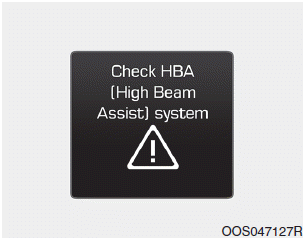Hyundai i-30: Ignition System / Description and operation
Hyundai i30 (PD) 2018-2025 Service Manual / Engine Electrical System / Ignition System / Description and operation
| Description |
The ignition coil is a kind of small transformer that transforms the battery
voltage to 30 kV or more to create a spark in the spark plug gap in the cylinder.
The igniter embedded in the ignition coil includes the power transistor and
it is an electronic switch whose electric current is controlled by the Engine
Control Module (ECM) signal.
The ignition timing is controlled by the ECM and the standard ignition timing
data depending on the engine operating condition is stored in the ECM memory.
The engine operating conditions (speed, load, warm-up state, etc.) are detected
by the various sensors.
Based on these sensor signals and the ignition timing data, when the ECM applies
the ignition signal to the ignition coil for a certain period of time, igniter
is energized and current flows and rises gradually to the primary coil and the
magnetic filed is produced.
When the current in the primary coil is cut off by the ignition signal of the
ECM, the rapid change of the magnetic flux by the mutual induction action is
induced to the secondary coil and high voltage is generated depending on the
coil winding ratio.
This high voltage generated from the secondary coil is caught in the spark plug
gap and discharges as the electric field is destroyed to generate a spark.
Other information:
Hyundai i30 (PD) 2018-2025 Owner's Manual: Front air ventilation seat
The air ventilation seats are provided to cool the front seats by blowing air through small vent holes on the surface of the seat cushions and seatbacks. When the operation of the air ventilation seat is not needed, keep the switches in the OFF position...
Hyundai i30 (PD) 2018-2025 Owner's Manual: Smart cruise control (SCC) with stop & go system
➀ Cruise indicator ➁ Set speed ➂ Vehicle-to-vehicle distance To see the SCC screen on the LCD display in the cluster, select ASSIST mode (). For more information, refer to “LCD Display Modes” in chapter 3. The Smart Cruise Control System allows you to program the vehicle to maintain constant speed and minimum distance between the vehicle ahead...
Categories
- Manuals Home
- 3rd Generation i30 Owners Manual
- 3rd Generation i30 Service Manual
- FCA sensor
- Engine coolant
- Engine compartment
- New on site
- Most important about car
Warning light and message

When the High Beam Assist (HBA)
System is not working properly, the
warning message will come on for a
few second. After the message disappears,
the master warning light ( )
will illuminate.
)
will illuminate.
Copyright © 2025 www.hi30.net


